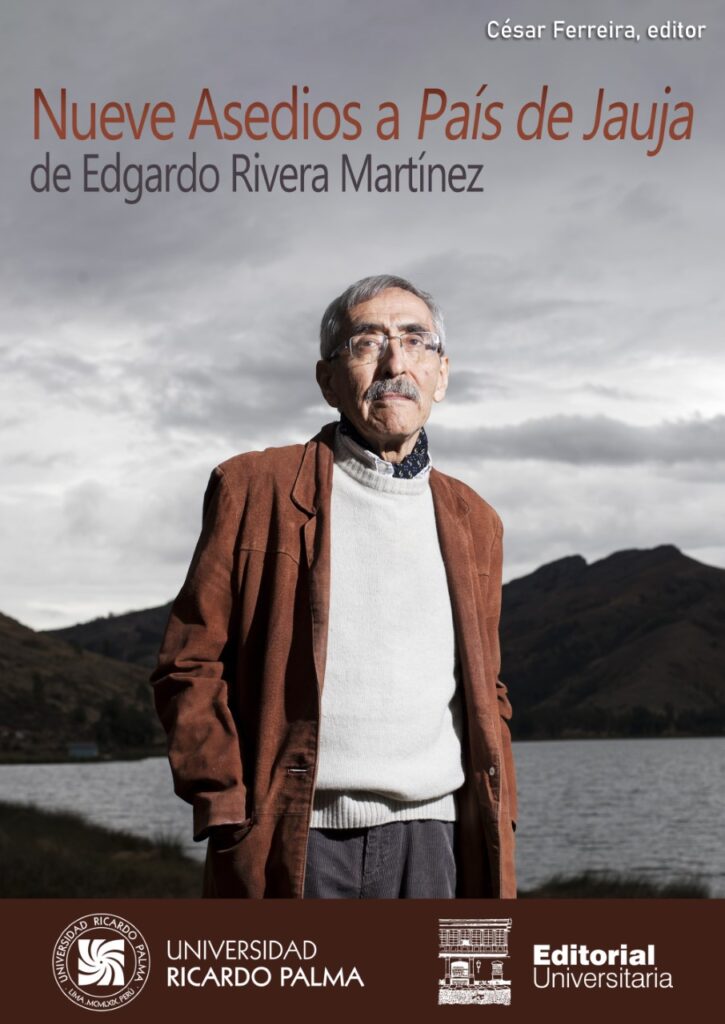
César Ferreira, ed.: Nueve asedios a País de Jauja de Edgardo Rivera Martínez
This volume brings together a variety of critical approaches to the novel País de Jauja on the thirtieth anniversary of its publication. The diverse readings put forth by each of the included essays demonstrate the currency of one of the major Peruvian novels of the late twentieth century and attest to the well deserved seat of honor that Edgardo Rivera Martínez occupies in Peruvian literary history.
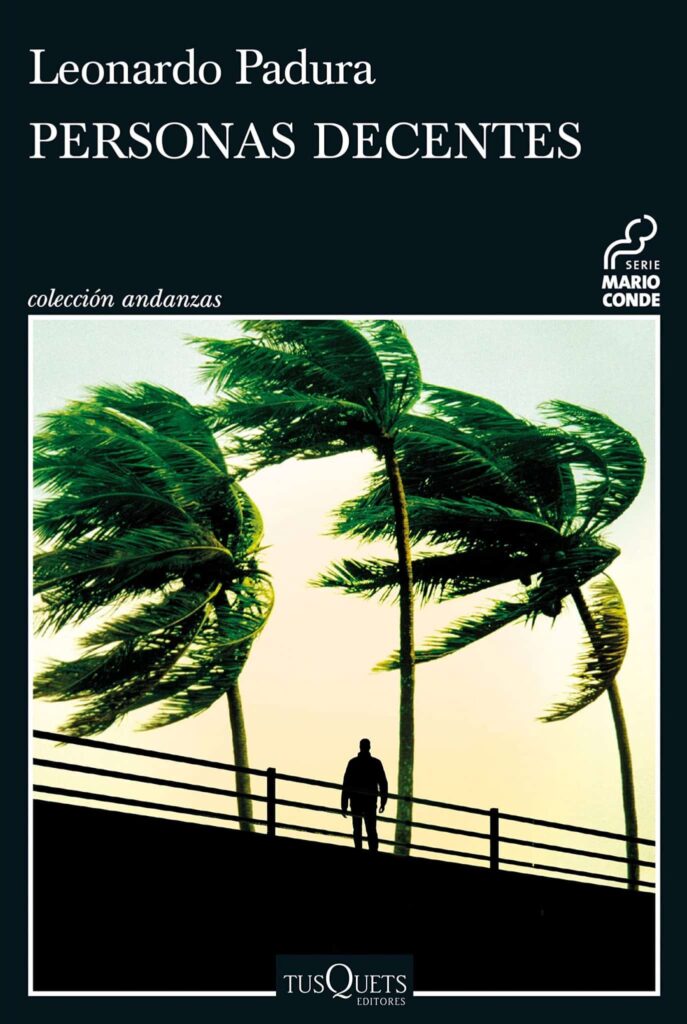
Leonardo Padura: Personas decentes
Havana, 2016. A historic occurrence shakes Cuba to its core: Barack Obama’s visit during what has been called the “Cuban thaw”—the first official visit by a US president since 1928—along with events like a Rolling Stones concert and a Chanel parade, all of which turn the island’s rhythm upside-down. So, when a former Cuban government strongman is found murdered in his apartment, the police, overwhelmed by the presidential visit, turn to Mario Conde for a hand with the investigation. Conde will find out the dead man had many enemies; he was once a censor, ensuring artists towed the revolutionary party line, and was known as a despotic, cruel man who ended the careers of many who refused to fold to his demands. When, a few days later, he finds a second dead body murdered with the same modus operandi, Conde must discover if the two deaths are related and what lies behind these murders.
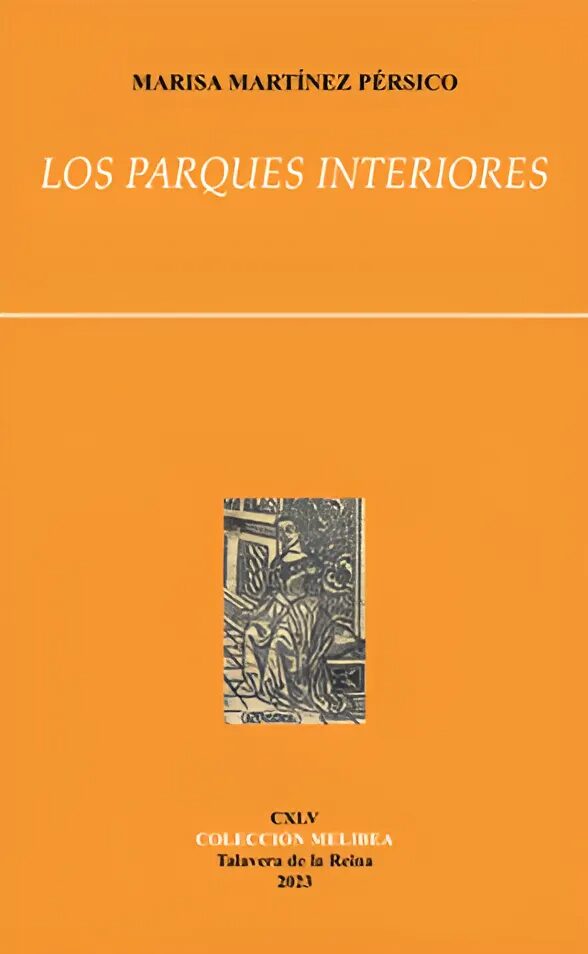
Marisa Martínez Pérsico: Los parques interiores
Los parques interiores by Argentine poet Marisa Martínez Pérsico received the forty-eighth Rafael Morales Poetry Prize in Spain. This book inadvertently demystifies the prejudice that tells us a poet must have “a voice of their own”: “a voice” in the singular and “of their own” as author and authority. In doing so, it also squashes the farce of identity: within each of us lives all of us, as is clear from the epigraph through the rest of the book. Aristotle told us “being is said in many ways.” Here, being is expressed with a plurality of emotional mettles, styles, predictions, and memories. At the heart of this poetry lies a loss, not all its own but all of ours: the open track that every reader fills with what is missing from life.
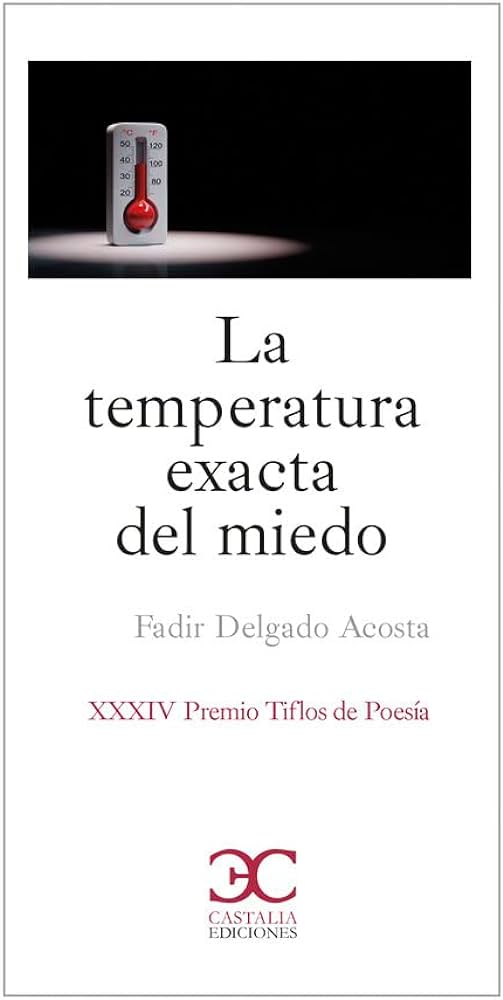
Fadir Delgado: La temperatura exacta del miedo
The human being from the human soul. That’s La temperatura exacta del miedo, the poetry collection by Fadir Delgado, which received Colombia’s National Poetry Prize in 2023. Despite the smiles and clarity of life, each of us bears within ourselves our own fears. angsts, displeasures… and sickness is the culmination of them all. So, this work is born as a reflection on ourselves, on sickness and the tracks it leaves inside, on the soul; in short, a neverending game of contradictions and sentiments, full of symbols and paradoxes, that resonates with each and every one of us, verse after verse.
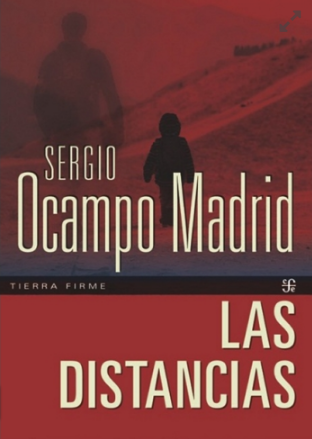
Sergio Ocampo Madrid: Las distancias
Rare are literary works that accurately express the abyss between the extremes of reality, often separated by a mere neighborhood street or the few miles between city and countryside; those inescapable fates explained away as family roots, as surnames, that determine, for better or for worse, the luck and life of everyone in societies like ours. In this novel, which dips its toes into both the essay and the biography, Sergio Ocampo Madrid has met this challenge head-on, offering us a critical view of the Colombia of the past half century, interwoven with his version of the story-never-told, the ever-missing piece in this continent of hyperboles and illusions that is Latin America.
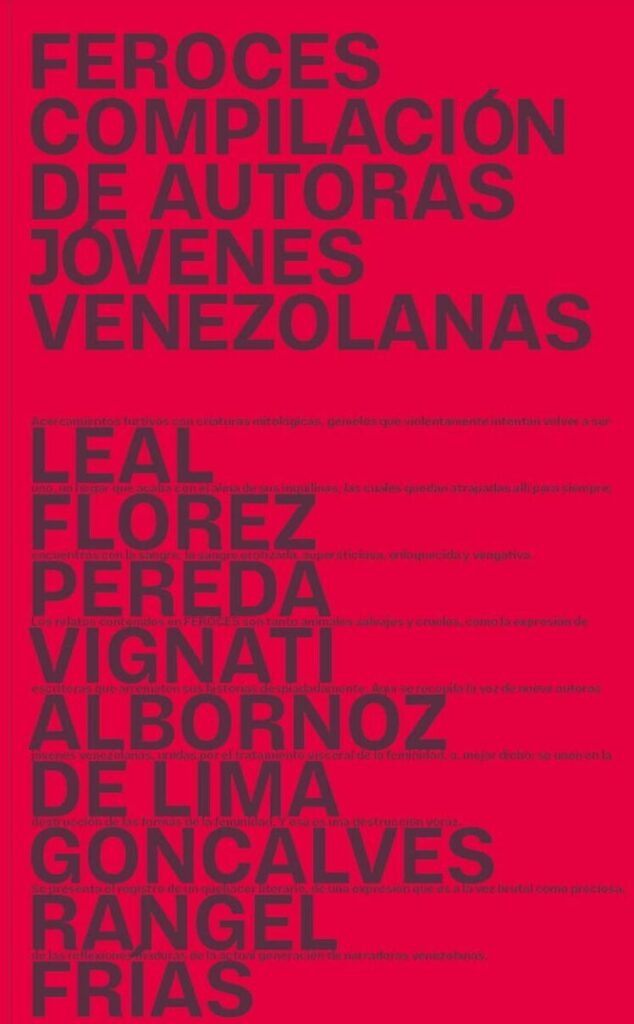
Various authors: Feroces: compilación de autoras jóvenes venezolanas
The stories collected in Feroces: compilación de autoras jóvenes venezolanas (Sello Cultural, 2023) are written in Venezuelan, not only in terms of their author’s nationalities or the context—whether it be urban or rural—in which they take place, but also in terms of the ways these tales are constructed, their starkly open way of naming things. My father used to say, in the end, people end up falling out with their own language. The authors of Feroces, on the other hand… go wild over it, bare their fangs, and sink their claws into the Venezuelan tongue. And that is both a beauty and a delight. – José Urriola
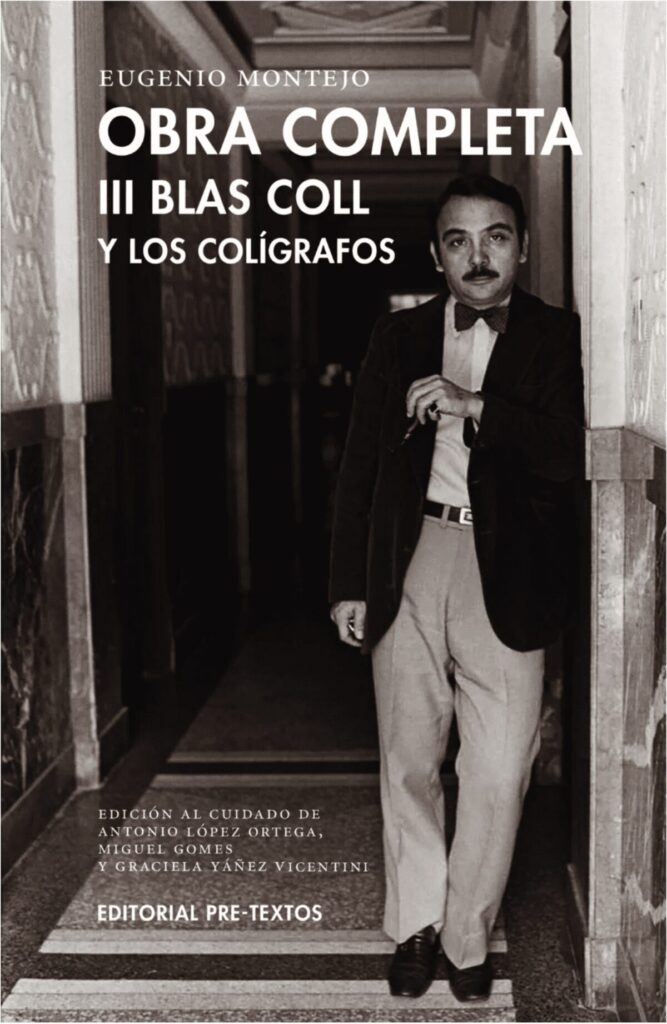
Eugenio Montejo: Obra completa. Tomo III. Blas Coll y los colígrafos
In his practice as a poet and essayist, Eugenio Montejo cultivated what he called “oblique writing,” a very personal and often playful take on heteronymy. Following the tradition of Larbaud, Pessoa, and Machado, this “obliqueness” conceives of our subjective sphere as a labyrinth. Around Blas Coll, the typographer of Puerto Malo, an excentric obsessed with language, orbits the work of the “Colligraphers”: Sergio Sandoval, maker of popular coplas; Tomán Linden, sonnetteer on his way back from all concern for modernity; Eduardo Polo, to whom we owe a mercurial children’s poetry; Lino Cervantes, focused on experiments like the “Colligram”; and Lucian Vacaresco, posthumous playwright, whose play “The Angel” is presented here for the first time, along with new materials from the other heteronyms.

Marcelo Rioseco: Midori & El 18-O
Marcelo Rioseco’s Midori is a true poetic happening in the Spanish language. It is written in a language that is no longer what is was, but rather what it will be, with speech-acts proper to the prophets of old, the Latin American music of one who is both nameless and faceless, of a “mad angel and his velvet soldiers” that descend down the continent towards Santiago de Chile to face the fatherland on an apocalyptic tour, passing through pained and ravaged cities, leaving behind phantasmagoric footprints and the grace of unresolved kinship. This is where its greatest merit lies. And in revealing, for youth of all ages, a verse that cures itself of the bitter metastasis of time gone by and the serpents of the violent, drugged out, and transmigratory present. – Luis Correa-Díaz
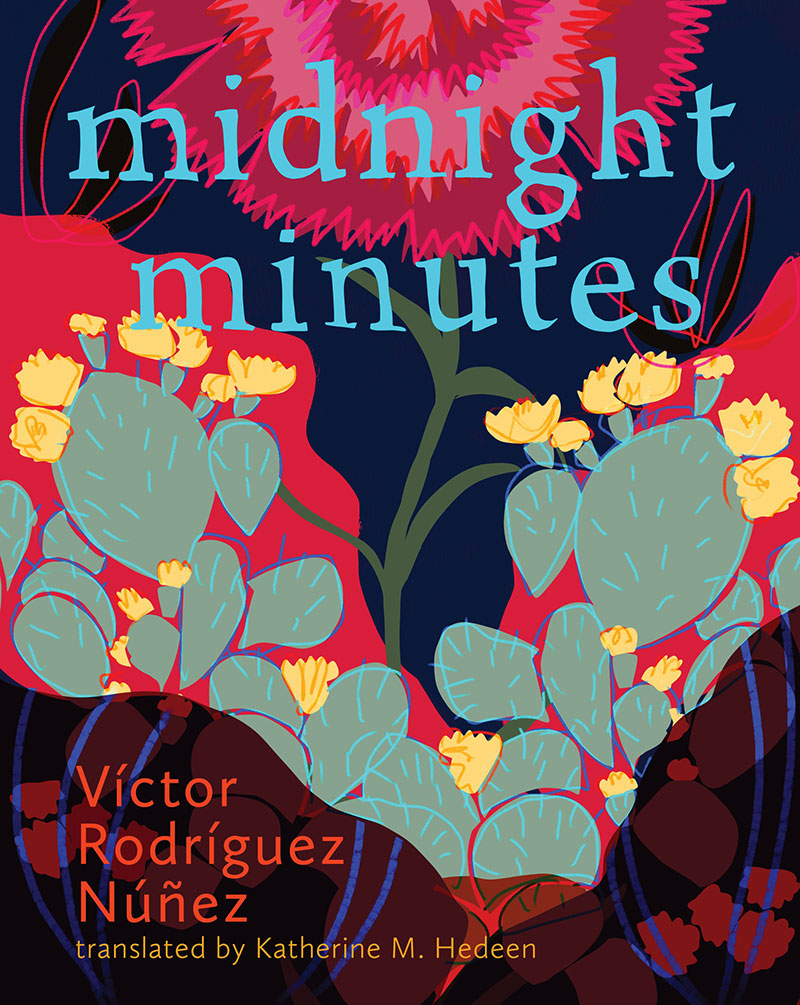
Víctor Rodríguez Núñez, tr. Katherine M. Hedeen: midnight minutes
midnight minutes is Cuban poet Víctor Rodríguez Núñez’s prize-winning anti-nationalist salvo. Two-thousand-plus lines that opt for the night as homeland, resisting all manner of borders. An exercise in freedom, here there is only flow: one long, dark breath. Defiant of accusations of irrationalism, unbound by anecdote, and highly experimental, midnight minutes signals a new path for contemporary Latin American poetry, translated with oceanic resourcefulness by his longtime collaborator, Katherine M. Hedeen.
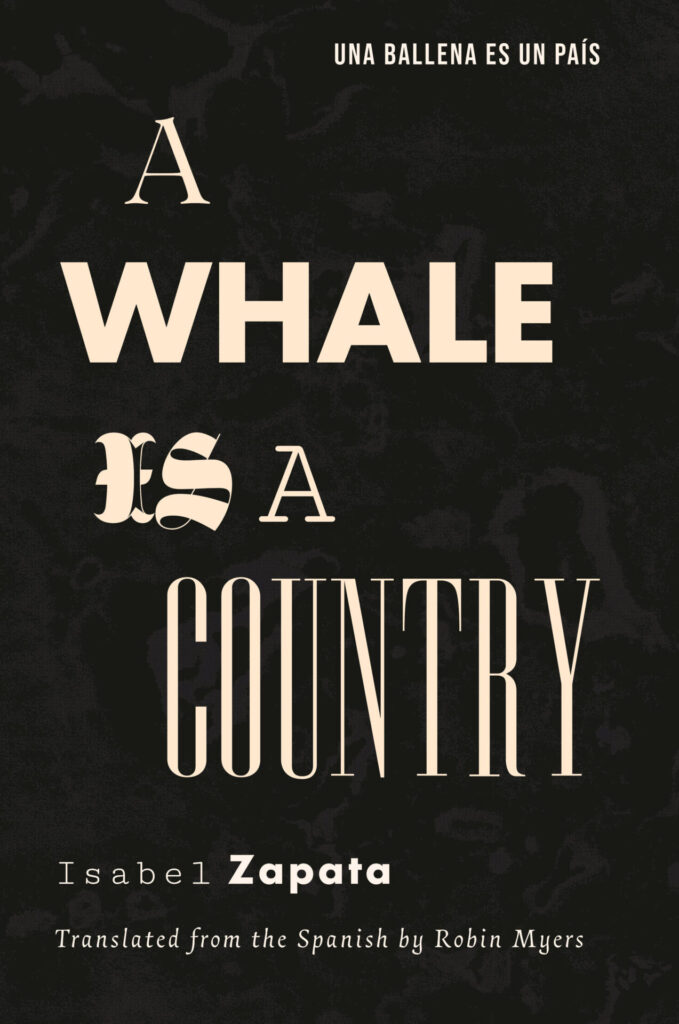
Isabel Zapata, tr. Robin Myers: A Whale Is a Country
The animals that populate the poems of Isabel Zapata’s A Whale Is a Country invent us: they lead us into the forest of our own humanity. Their songs, growls, and silences speak in a language we took for lost, but now we hear it anew: in tender, crystalline, quadrupedal poems that invite us to recover our connection to the kindred lives with which we share this world. An extinct marsupial is a ghost. A tortoise is an ancient spirit wandering an island at the end of the world. A stuffed polar bear is the modest proof of a terrible defeat. From the microscopic waters where the hardy tardigrades make their home, to the ardent imagination that forged the impossible jackalope, to the nature preserve in Woodside, California, where Koko the gorilla learned sign language, every ecosystem appears before us as a site of discovery and communion.
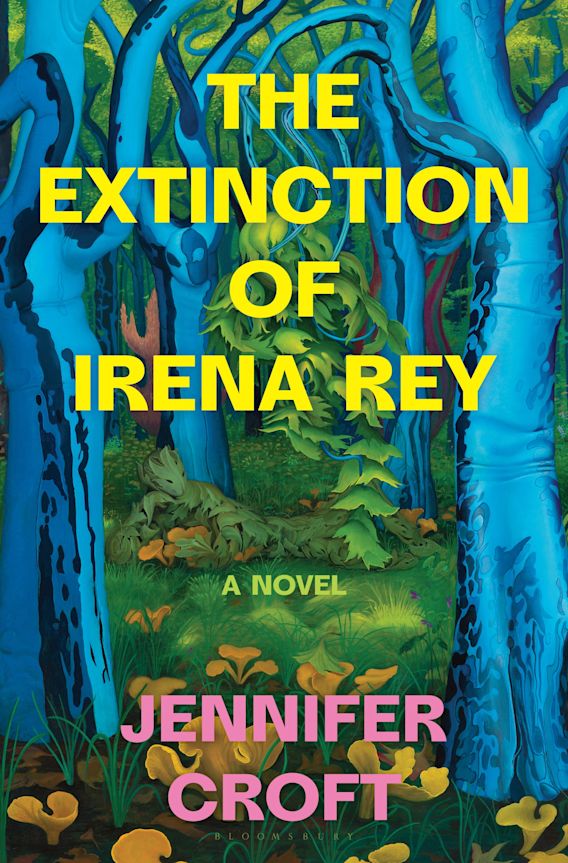
Jennifer Croft: The Extinction of Irena Rey
Eight translators arrive at a house in a primeval Polish forest on the border of Belarus. It belongs to the world-renowned author Irena Rey, and they are there to translate her magnum opus, Gray Eminence. But within days of their arrival, Irena disappears without a trace. The translators, who hail from eight different countries but share the same reverence for their beloved author, begin to investigate where she may have gone while proceeding with work on her masterpiece. They explore this ancient wooded refuge with its intoxicating slime molds and lichens and study her exotic belongings and layered texts for clues. But doing so reveals secrets—and deceptions—of Irena Rey’s that they are utterly unprepared for. Forced to face their differences as they grow increasingly paranoid in this fever dream of isolation and obsession, soon the translators are tangled up in a web of rivalries and desire, threatening not only their work but the fate of their beloved author herself.
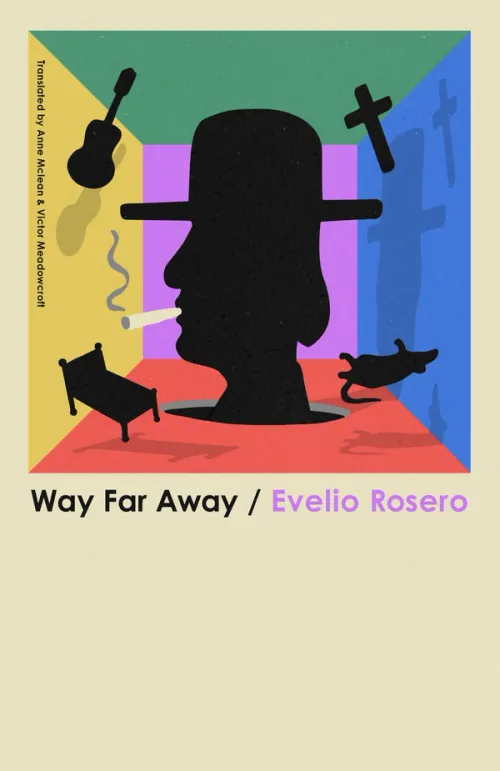
Evelio Rosero, tr. Anne McLean & Victor Meadowcroft: : Way Far Away
Way Far Away is the Colombian master Evelio Rosero’s ninth novel and has been billed by his Spanish publisher as “one of the most important Colombian works of fiction written in the past two decades.” In search of his missing granddaughter Rosaura, an old man named Jeremías Andrade arrives in a town strewn with dead mice and overflowing with mist and fog. The owner of a rotten hotel and the dwarf who always accompanies her; children who play with sinister soccer balls and observe life from the ruined rooftops; an albino named Bonifacio who appears and disappears like a ghost; the cart driver whose only task is to pick up the mice piling up night after night; the charitable nuns in a nearby convent—these are the characters that converge in a vigil turned nightmare. Jeremías’s wanderings reveal a haunting truth, and a possibility of reunion in a place where all is lost, a forever-gaping abyss.


